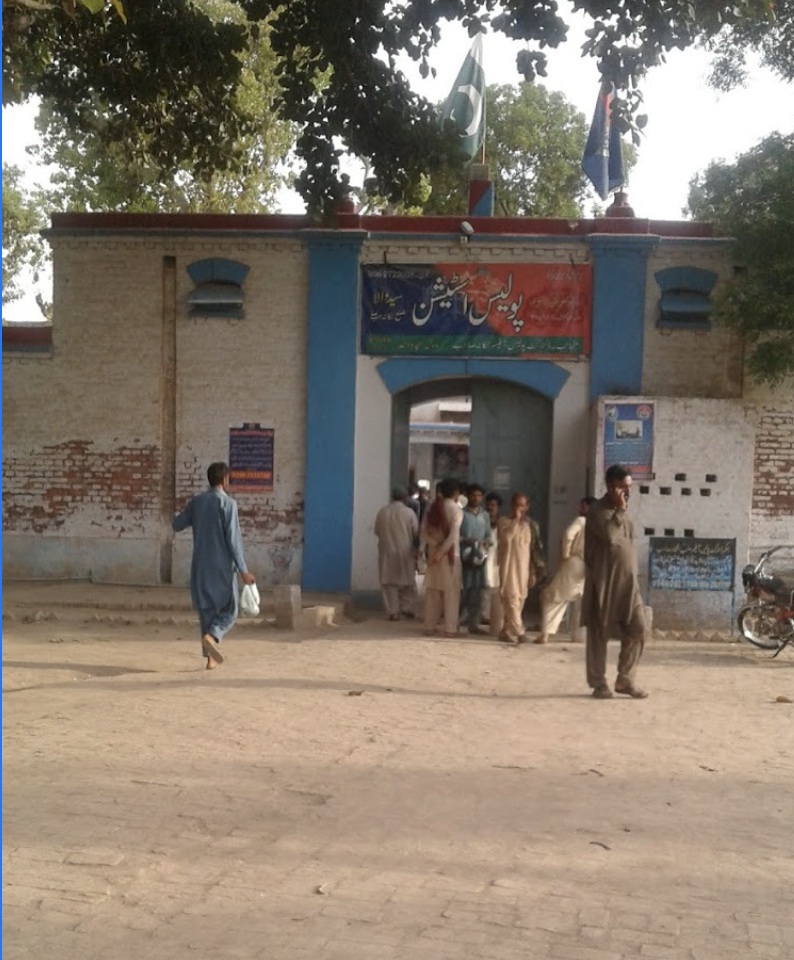2 August 2022 | International Human Rights Committee reported at the end of July how Pakistani authorities acted on arrest petitions by mullahs forbidding Ahmadi Muslims from celebrating the Muslim festival of Eid Al-Adha.
Police raided the private Eid Al Adha celebrations of Ahmadi Muslims in the Punjab province arresting 13. Mullahs – Islamic religious leaders – filed a petition against the Ahmadis calling them “mischief-makers” for celebrating the Muslim feast, the petitions for arrest included Canadian national, Mohammed Fiaz and his family. The petitioners have filed a case against several Ahmadis who celebrated, under Article 298C of the Penal Code. The article which clearly violates Article 18 of the International Covenant on Civil and Political Rights (ICCPR), violating the enjoyment of freedom of religion and belief for all Ahmadis, stripping them completely of the right to share their beliefs, call themselves Muslim or present their beliefs publicly.
Any person of the Qadiani group or the Lahori group (who call themselves “Ahmadis” or by any other name), who, directly or indirectly, poses himself as a Muslim, or calls, or refers to, his faith as Islam, or preaches or propagates his faith, or invites others to accept his faith, by words, either spoken or written, or by visible representations, or in any manner whatsoever outrages the religious feelings of Muslims, shall be punished with imprisonment of either description for a term which may extend to three years and shall also be liable to fine].
– Article 298-C Penal Code of Pakistan
In addition to the article of the Penal Code itself, the arrests and detention by the Syed Wala District Nankana police authorities of Ahmadi Muslims for celebrating a Muslim holiday, contravenes Article 18(1) of the ICCPR, which Pakistan ratified over 10 years ago in June 2010. The Human Rights Committee has made clear that the right to freedom of religion or belief includes the observance of holidays. Moreover, the authorities’ actions of hindering Ahmadi Muslims from celebrating their celebration do not meet the threshold for permissible limitations cited in Article 18(3) to, “protect public safety, order, health, or morals or the fundamental rights and freedoms of others,” which should be interpreted restrictively and non-discriminatorily.
“Limitations imposed must be established by law and must not be applied in a manner that would vitiate the rights guaranteed in article 18 [...] Restrictions may not be imposed for discriminatory purposes or applied in a discriminatory manner.“
– Human Rights Committee, general comment 22, para. 8.
“The Committee observes that the concept of morals derives from many social, philosophical and religious traditions; consequently, limitations on the freedom to manifest a religion or belief for the purpose of protecting morals must be based on principles not deriving exclusively from a single tradition. […]”.
– Human Rights Committee, general comment 22
The reasons for arrest submitted by the mullahs and recorded by the police in its First Information Report (FIR)* blatantly contradict core tenants of Article 18 and the guidelines provided by the Human Rights Committee, since the call for the arrests target the beliefs of Ahmadis and seek to protect a specific moral/ faith tradition:
- The arrest petition includes a slur towards Ahamdis calling them Mirzais which exposes the intent behind the arrest petition as not being solely about protecting perceived morals but by targeting a specific group that the petitioner dislikes.
- The arrest petition contradicts Article 18, as the petitioner dictates and limits a religious practice to only certain Muslims, which reveals the discriminatory nature in the petition and violates Article 18(1).
- The arrest petition makes clear that the petitioner has issue/takes offence at the beliefs of the Ahmadis – for their enjoyment of freedom of religion and belief
The petitioner writes “all [derogatory term for Ahmadis]** are outside the circle of Islam and cannot sacrifice an animal, and if they do such, they would be blaspheming the Sunnah of the Prophets.” The petitioner’s argument for the limitation of Article 18 is based on the petitioner’s inability to accept the right of Ahmadis to practice their religion and belief and is therefore, an impermissible justification to limit Article 18 (1).
*FIR is a written document prepared by the police when they receive information about the commission of a cognizable offence. It is a report of information that reaches the police first in point of time and that is why it is called the First Information Report.
**Qadiani – Derogatory term used by state and non-state actors in Pakistan to describe Ahmadis.
In light of the above, Jubilee Campaign condemns the raids and arrests made by the Syed Police of Ahmadi worshippers, and call on authorities to drop the charges and immediately release the Ahmadis accused. In addition, Jubilee Campaign calls on Pakistan to honour its human rights commitments and cease the application and justification of its blasphemy laws in including Article 295C, 298C and others.
We join with IHRC in calling on the extremists and Pakistan governmental authorities involved in these arrests to be brought to justice, and that Pakistan immediately bring its laws and practices in conformity with international standards.
Below screenshots from International Human Rights Committee‘s press release :




